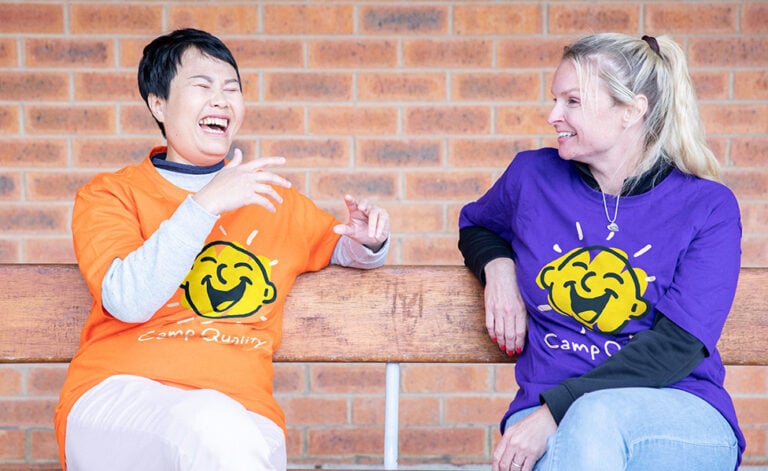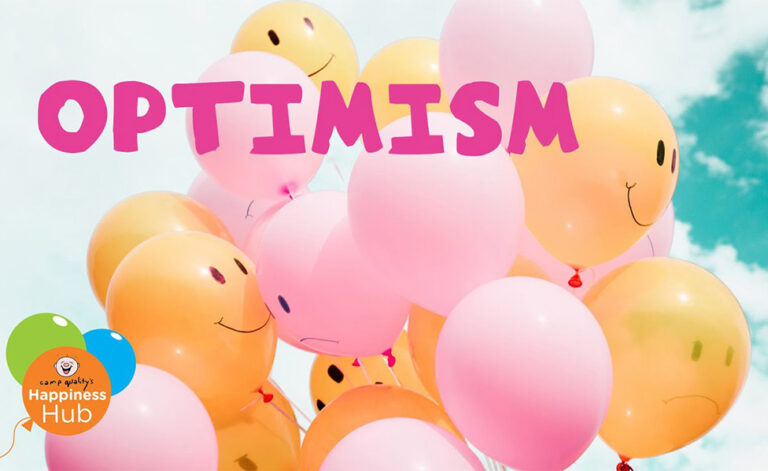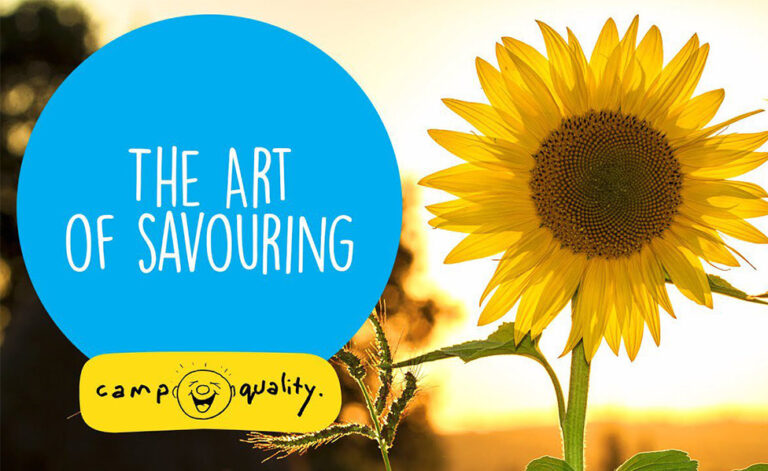The Laughter Prescription
The idea that laughter is good for us isn’t new – in medieval times if the king or queen was out of sorts, the first person to call was often the court jester, not the doctor. Now, science is taking laughter seriously as the evidence grows for the health benefits of a good laugh. So there are good reasons why Camp Quality aims to bring laughter, fun and positivity back into the lives of kids facing cancer.
The health benefits of laughter – what’s in it for you?
We need more research to truly understand laughter’s benefits but studies so far suggest that laughter can be good for both body and mind. A good laugh isn’t a cure all but it’s one more step we can take to promote wellbeing. It’s also free and easy to access – so what have we got to lose?
Laughter is good for your mental health
It’s a mood booster ….
“Most research into laughter and health has looked at mental health, and some studies have found it has a benefit for anxiety, depression and stress,” says laughter therapist Ros Ben-Moshe, an adjunct lecturer at La Trobe University’s School of Public Health and Psychology.
Ros, who was diagnosed with bowel cancer ten years ago, has personal experience with this. The timing of her diagnosis came just before she was scheduled to teach a laughter yoga class, leaving her wondering how she could possibly face doing laughter yoga. But she did and, after a session of laughter exercises and deep breathing, felt far less anxious.
“I felt lighter and more psychologically prepared for what lay ahead,” she says. “I had a feeling laughter would be tied to my recovery. From that moment on, I let the doctors take charge of my illness and I took charge of my wellness.”
…and a stress buster
“If you’ve had a stressful day and then have a good laugh it releases the tension. You’re also not thinking about the future or the past when you laugh so it has a mindful effect that brings calm,” Ros says.
Studies have found that laughter can reduce levels of stress chemicals in the body – and that’s good for us. Over time, too high levels of these chemicals may contribute to high blood pressure, as well as anxiety and depression.
Laughter is good for your physical health too
A good laugh can:
Soothe pain – a little. Some small studies suggest humour might help us cope better with pain – a clown doctor in the emergency room helped reduce pain in children having a painful procedure in one Israeli study, for example. This may be because laughter helps increase the brain’s production of natural painkillers called endorphins.
Boost your immune system. Some research has found that laughter has positive effects on the immune system.
- Having laughter therapy improved immunity in people having chemotherapy to treat cancer according to a Japanese study.
- In a US study when one group of people watched a funny video, while another watched a travel video, those who laughed the most at the funny video had increased activity in their natural killer cells.
Be good for your heart. People who laugh more often have a lower risk of heart disease, according to one Japanese study. This may be because other research suggests that laughing helps blood vessels to relax and increase blood flow.
How does laughter have these effects?
“One reason is that laughter has a physiological effect similar to exercise, “explains Ros Ben-Moshe. “We take in more air when we laugh which increases oxygen to the body and boosts levels of ‘feel good’ brain chemicals like endorphins and dopamine.”
Is laughing good for relationships?
“Yes – if you laugh with someone then you build a connection and it helps ease stress,” she says.
This is especially important when someone you love is going through a challenging time, Ros adds. Being able to share a laugh is a connection to normality and can also help improve the way family members interact.
Smiles can even be catching.
“When you smile at someone, it activates brain cells called mirror neurons in both your own and the other person’s brain, prompting them to smile back,” she says.
How to get more laughter into your day (and why you should)
Don’t wait for something funny to happen – make a point of getting more ‘doses’ of laughter and humour into your day is her advice.
- Start the day by placing a smile on your face first thing in the morning.
- Make eye contact with people you pass in the street or at work, and smile.
- Call someone who you know will make you laugh.
- Watch a comedy clip online or check out funny posts on Facebook – and turn down the news.
- Tune in to more sit-coms or funny movies.
- Try laughter yoga, the group activity that mixes laughter with breathing exercises -some studies suggest it may help reduce stress and blood pressure.
- Check out Camp Quality’s Happiness Hub for fun ways to put more laughter and play into your day.






